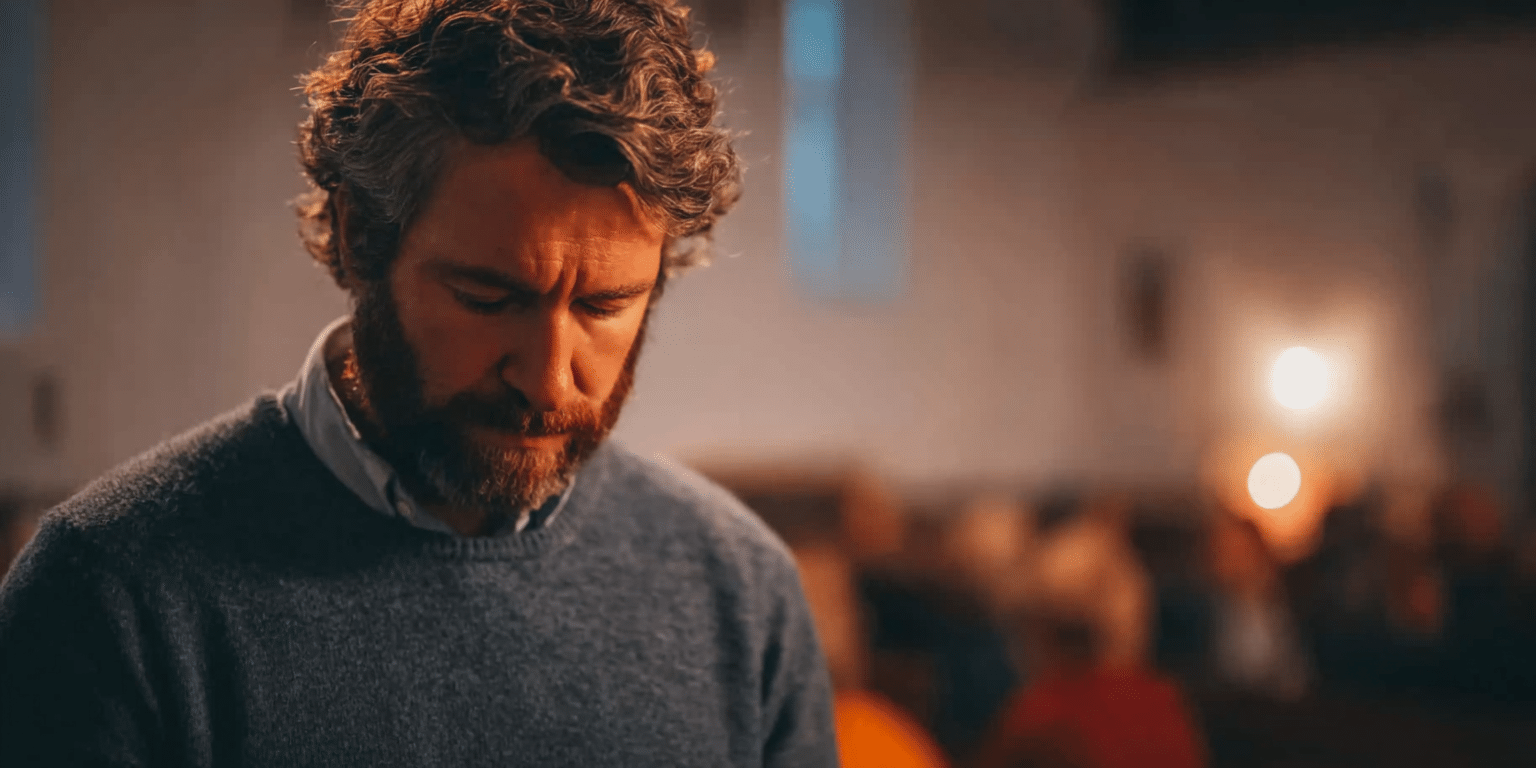When Faith Turns into Fear: Understanding Religious Scrupulosity
When Faith Turns into Fear
It’s two in the morning, and you’ve already whispered the same prayer ten times—“just once more so God knows I mean it.” Instead of bringing comfort, each repetition tightens the knot in your chest. When sincere devotion morphs into round‑the‑clock anxiety, you may be dealing with religious scrupulosity, sometimes called religious OCD. A constant undercurrent of anxiety can distort your faith experience, making spiritual practices feel burdensome rather than uplifting.
What Is Religious Scrupulosity?
Religious scrupulosity is a mental‑health condition where worries about sin, purity, or blasphemy hijack someone’s faith life. This condition is also known as moral or religious OCD. Clinicians classify it as a subtype of obsessive‑compulsive disorder—not a sign of weak belief—according to a wide‑ranging review of clinical studies. People with scrupulosity experience intrusive doubts (“Did I offend God just now?”) and feel an urge to neutralize those doubts with rituals like endless confession, prayer, or reassurance seeking. These intrusive doubts are examples of scrupulous obsessions, which often focus on moral issues.
The term ‘scrupulosity’ comes from the Latin word for ‘sharp stone’ (scrupulum), symbolizing the persistent, stabbing discomfort or conscience pain associated with moral or religious concerns.
In Western, secular countries, up to a third of people with OCD present with scrupulous symptoms.
Intrusive Thoughts ≠ Your Conscience
Dear Intrusive Thought,
You show up uninvited, shouting that one wrong word could doom my soul. People with scrupulosity may act as their own ‘holy spirit,’ constantly judging themselves and feeling overly concerned about their moral standing.
But you’re not the voice of God or my moral compass—you’re OCD noise, and you don’t get to run the show.
That little letter sums up the difference: healthy conscience guides our actions; intrusive thoughts demand certainty that no one can ever guarantee. Research on cognitive styles in scrupulosity finds that people often equate thinking a bad thought with committing a bad act—a mental trap highlighted in a recent study of obsessive thinking patterns.
Everyday Signs in Spiritual Life
Religious scrupulosity rarely hides in the abstract; it turns up in day‑to‑day worship. Common obsessions in religious scrupulosity often include fears of offending God, committing blasphemy, or engaging in mental rituals.
Common red flags include excessive prayer, religious compulsions, and religious behavior that goes beyond typical devotion, such as constant reassurance seeking, and avoiding services out of fear of sin—behaviors outlined in a clinical features study of scrupulosity. This excessive behavior can cause individuals to focus excessively on rituals or religious practices, leading to anxiety and distress. Many individuals with religious scrupulosity engage in behaviors that are not typical of most people practicing their faith, which can alienate them from their community. If you notice that worship time leaves you more anxious than at peace, it may be more than “just being devout.”
Quick Self‑Check
- Do your rituals help you feel connected, or are they driven by anxiety or guilt instead?
- Are you missing work, school, or family events because a prayer “isn’t perfect yet”?
- Do you ask friends or clergy the same “Did I sin?” question over and over?
If you answered “yes” to any of these, keep reading—help is available.
Why Does Scrupulosity Happen?
Scientists point to the same brain circuits involved in obsessive‑compulsive disorder: the “doubt and danger” alarm system fires too easily, then refuses to shut off. Scrupulosity is just one of several other forms of OCD, including moral scrupulosity, which centers on ethical or moral concerns rather than religious ones. Certain thinking styles add fuel, like believing a bad thought is as sinful as a bad action or struggling with uncertainty—themes highlighted in research on uncertainty and scrupulous fear of sin. The brain of individuals with OCD may show different activity patterns compared to non-OCD individuals, impacting their thought processes.
Risk Factors
- Perfectionistic upbringing where small mistakes felt catastrophic.
- High stress or life changes that spike anxiety.
- Pre‑existing OCD or anxiety disorders.
Remember: it’s not about being “too religious.” It’s about how the brain handles doubt and guilt.
The Role of a Supportive Faith Community
A caring congregation can be an antidote to isolation. When pastors, rabbis, imams, or lay leaders understand that scrupulosity is a treatable form of OCD—not a spiritual failing— they can steer members toward help instead of endless reassurance. Simple steps like normalizing talk about mental health during sermons, partnering with local therapists for referrals, or offering prayer that doesn’t reinforce compulsions create space where faith and recovery grow side‑by‑side.
Scrupulosity Across Faith Traditions
Obsessive doubt shows up in many religions, especially those that place heavy emphasis on sin, confession, or purity codes. Whether someone counts rosary beads, performs wudu before prayer, or studies sacred texts for hours to be “sure,” the pattern is the same: intrusive guilt + ritual relief. Remember, the problem is the OCD cycle—not the religion itself. Evidence‑based treatments like CBT and ERP work regardless of tradition, helping people reclaim devotion without fear.
Breaking the Guilt Cycle: Therapy That Works
The gold‑standard treatment is exposure and response prevention (ERP), a form of CBT that helps you face feared thoughts without falling into rituals. ERP and medication are the most effective ways to treat scrupulosity, helping individuals stop engaging in compulsive behavior that reinforces anxiety or intrusive thoughts. Clinicians aim to treat people with compassion and without judgment, focusing on managing OCD symptoms rather than making moral evaluations. ERP sessions can be adapted so that exercises respect your beliefs—no one is asked to abandon faith.
Therapists may incorporate schema therapy, an approach that targets deep‑seated “I’m bad” or “God is angry” beliefs uncovered in a network analysis of early maladaptive schemas. Other supportive options—like Acceptance and Commitment Therapy (ACT) or mindfulness‑based CBT—focus on building tolerance for uncertainty and self‑compassion. Many individuals report a reduction in compulsions and avoidance behaviors after engaging in acceptance and commitment therapy.
Medication can play a supporting role. Selective serotonin reuptake inhibitors (SSRIs) are sometimes prescribed to lower baseline anxiety, giving therapy room to work.
Whatever the method mix, the goal stays the same: break the guilt‑ritual cycle so faith can feel like belonging again, not a 24/7 test.
Self‑Help Strategies You Can Try Today
Even small shifts can loosen scrupulosity’s grip while you wait for therapy—or use alongside it:
- Name the thought, not the threat. Silently say, “That’s my OCD talking,” whenever the fear of sin pops up. Labeling breaks the spell of urgency.
- Two‑minute grounding reset. Plant both feet on the floor, breathe slowly, and name three things you can see, hear, and feel. Short grounding drills like these have been shown to lower anxiety in mindfulness‑based stress‑reduction exercises.
- Set a ritual timer. Give prayers or confessions a reasonable time limit—say five minutes—then stop when the timer ends. This is a gentle practice round for full ERP.
Setting limits on time spent researching or reading religious texts can also help prevent compulsive behavior driven by obsessive thoughts.
Consistency beats intensity. Practicing once a day builds confidence that anxiety can fade without another round of compulsions.
When & How to Seek Professional Support
Scrupulosity rarely settles down on its own. Consider reaching out if:
- Faith activities turn into avoidance or dread.
- Rituals eat up more than an hour a day or disrupt work, school, or relationships.
- You feel stuck in a guilt loop even after reassurance from clergy or friends.
Family members can play a crucial role in supporting recovery, especially for young people who may be required to attend religious services and struggle with autonomy in their faith journey. Involving relatives in recognizing OCD behaviors, avoiding enabling reassurance, and providing emotional support can make a significant difference.
At Therapy Group of DC, our clinicians use evidence‑based approaches like ERP and CBT, tailoring exercises so they fit your belief system and values. Scheduling an appointment is as simple as filling out our secure online form—getting help shouldn’t require another spiritual obstacle course.
Closing Reassurance
Devotion and peace can coexist. Religious scrupulosity is treatable, and many people reclaim a faith life rooted in connection rather than fear. If the worry voices keep shouting, remember: you don’t have to face them alone. Support is here whenever you’re ready.
Frequently Asked Questions About Religious Scrupulosity
What is the difference between religious scrupulosity and typical religious practice?
Religious scrupulosity involves obsessive thoughts and compulsive behaviors that cause significant distress and interfere with daily life, whereas typical religious practice is a healthy expression of faith within a faith community. Religious practices, when performed in a typical manner, support spiritual well-being, but scrupulosity distorts these practices by turning them into compulsive behaviors driven by anxiety rather than genuine devotion. Scrupulosity often includes excessive repetition of religious rituals and mental acts driven by anxiety rather than devotion.
How do religious leaders fit into the treatment of scrupulosity OCD?
Religious leaders can play a supportive role by helping clarify faith-based beliefs and providing guidance that distinguishes between scrupulous symptoms and genuine religious faith. Collaboration between mental health professionals and religious leaders can help individuals feel understood and supported within their spiritual practices.
What kinds of compulsive behaviors are common in religious scrupulosity?
Scrupulous individuals often experience these compulsive behaviors as a way to manage their anxiety and guilt.
Common compulsive behaviors include excessive prayer, purifying rituals, repetitive confession, reassurance seeking, and other repetitive behaviors aimed at neutralizing intrusive religious obsessions or blasphemous thoughts.
Can scrupulosity OCD affect people of all religions or faith backgrounds?
Yes, scrupulosity OCD is not limited to any particular religion. It can affect individuals across various faith communities and even those without formal religious affiliation, as it is a mental health disorder rather than a reflection of one’s actual religious beliefs.
What treatments are effective for religious scrupulosity?
Exposure and response prevention therapy (ERP), a form of cognitive behavior therapy, is the gold standard for treating scrupulosity OCD, and these approaches are commonly used to treat scrupulosity specifically. Selective serotonin reuptake inhibitors (SSRIs) may also be prescribed to manage anxiety symptoms. Treatment often includes working in a controlled environment to confront intrusive thoughts without engaging in compulsive rituals.
How do spiritual doubts relate to scrupulosity symptoms?
Spiritual doubts in scrupulosity manifest as persistent, unwanted thoughts that cause significant distress and anxiety. These doubts are different from normal questioning in faith and are often accompanied by compulsive behaviors aimed at alleviating the anxiety caused by these obsessions.
Is scrupulosity considered a mental health disorder?
Yes, scrupulosity is recognized as a subtype of obsessive compulsive disorder (OCD), which is a mental health disorder characterized by obsessions and compulsions that cause significant distress and impairment in daily life.


